B-52s: Cosmic Thing (1989)
Released 36 Years Ago Today
Prince: Purple Rain (1984)
Released 42 Years Ago Today
Giorgio Moroder: Giorgio & Chris (1978)
Released 42 Years Ago Today
https://www.youtube.com/watch?v=KeCPTZMdV_U&list=PL94gOvpr5yt2E6b_zKjMMhYwGuKV4cclp
Grace Jones: Fame (1978)
Released 42 Years Ago Today
Alicia Bridges: I Love the Nightlife (1978)
A Late Birthday Gift to Myself
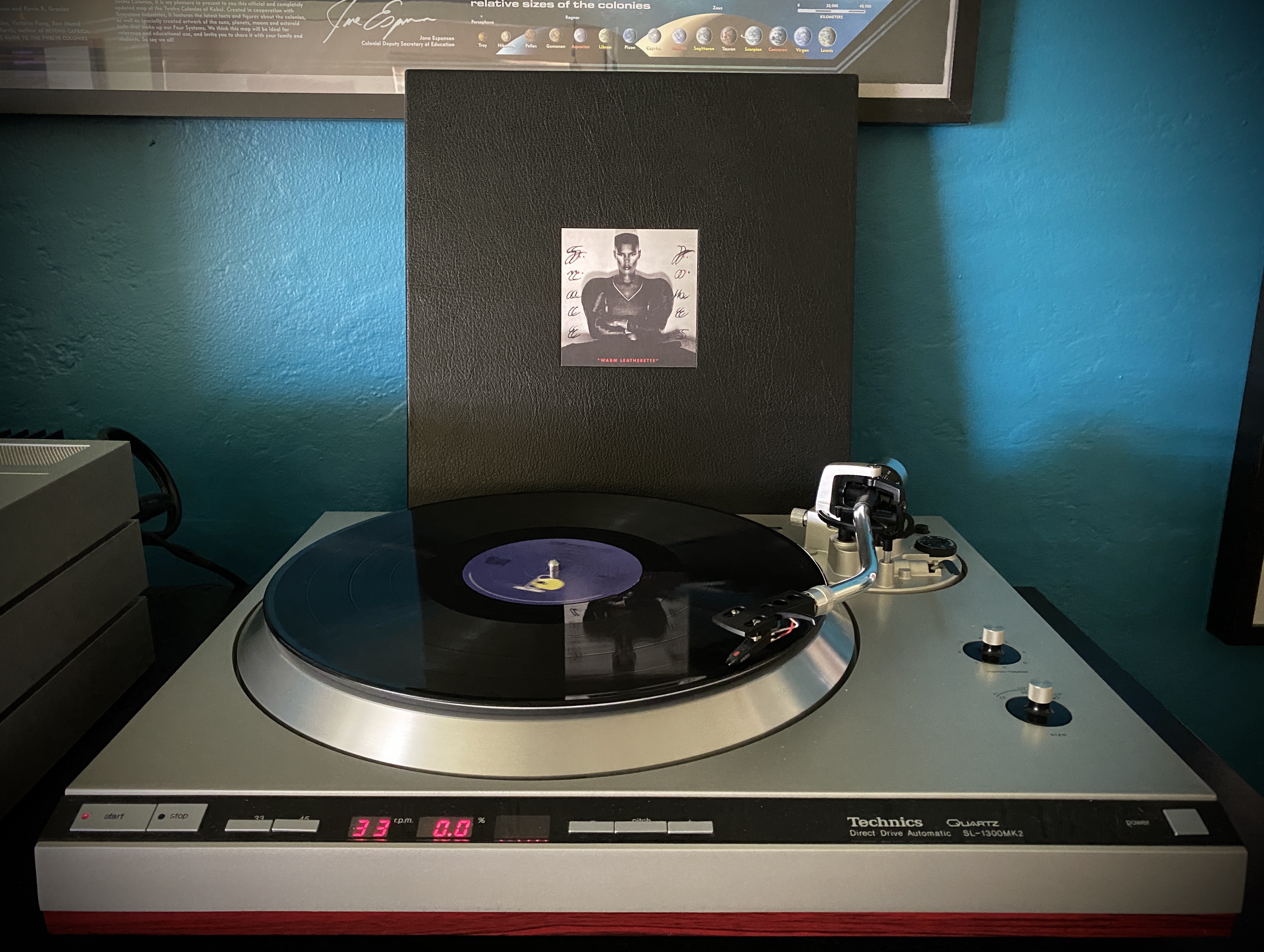
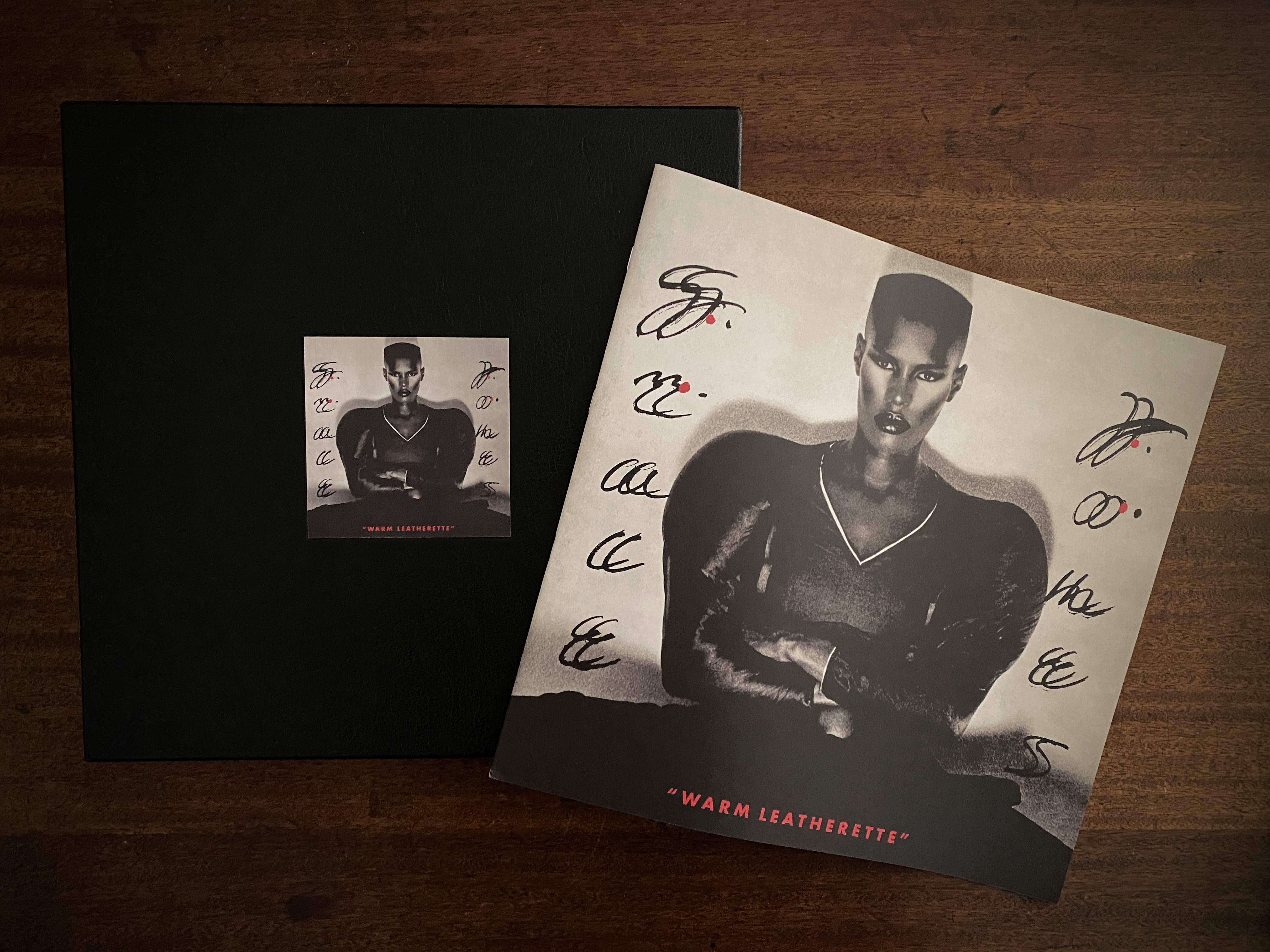
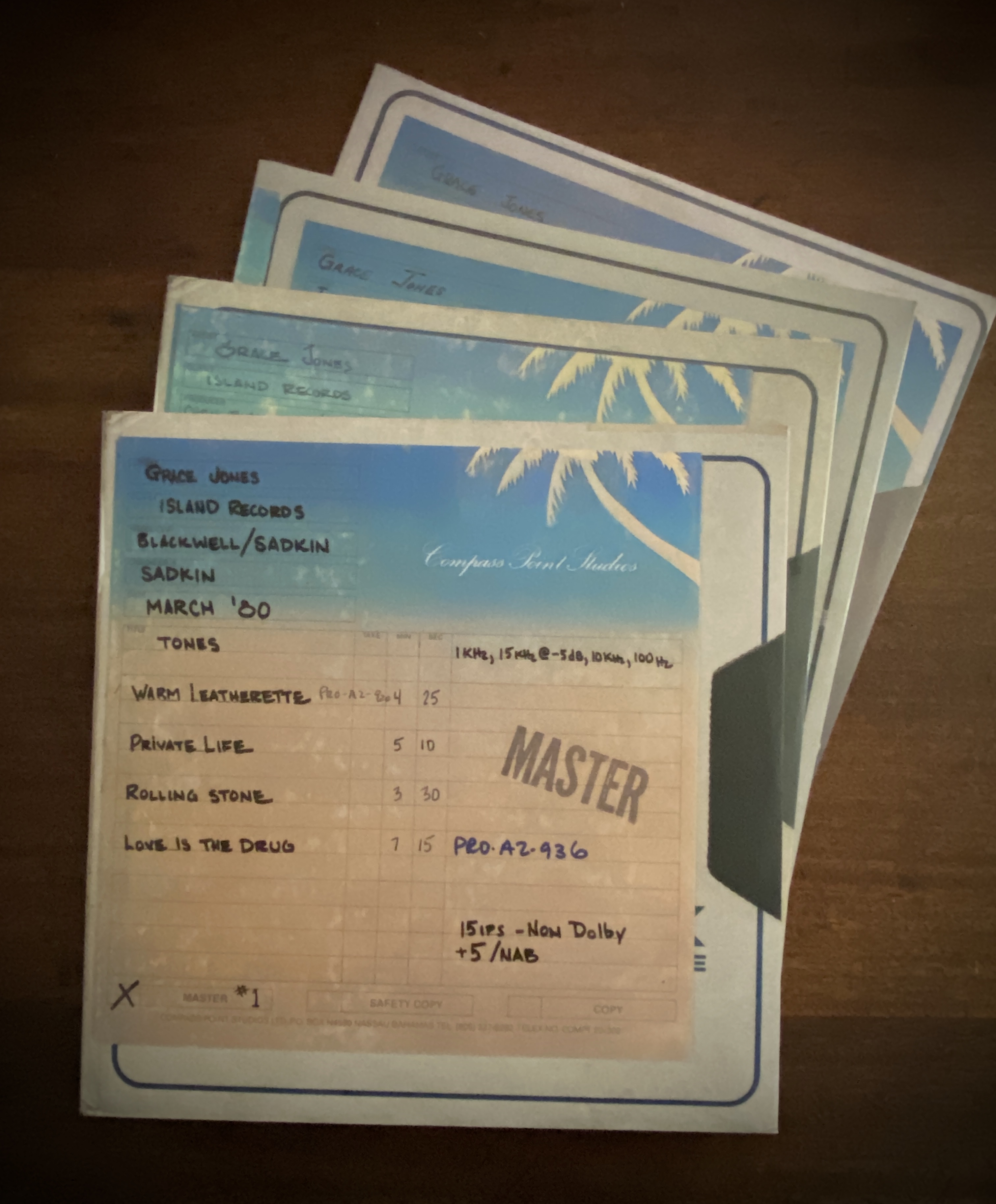
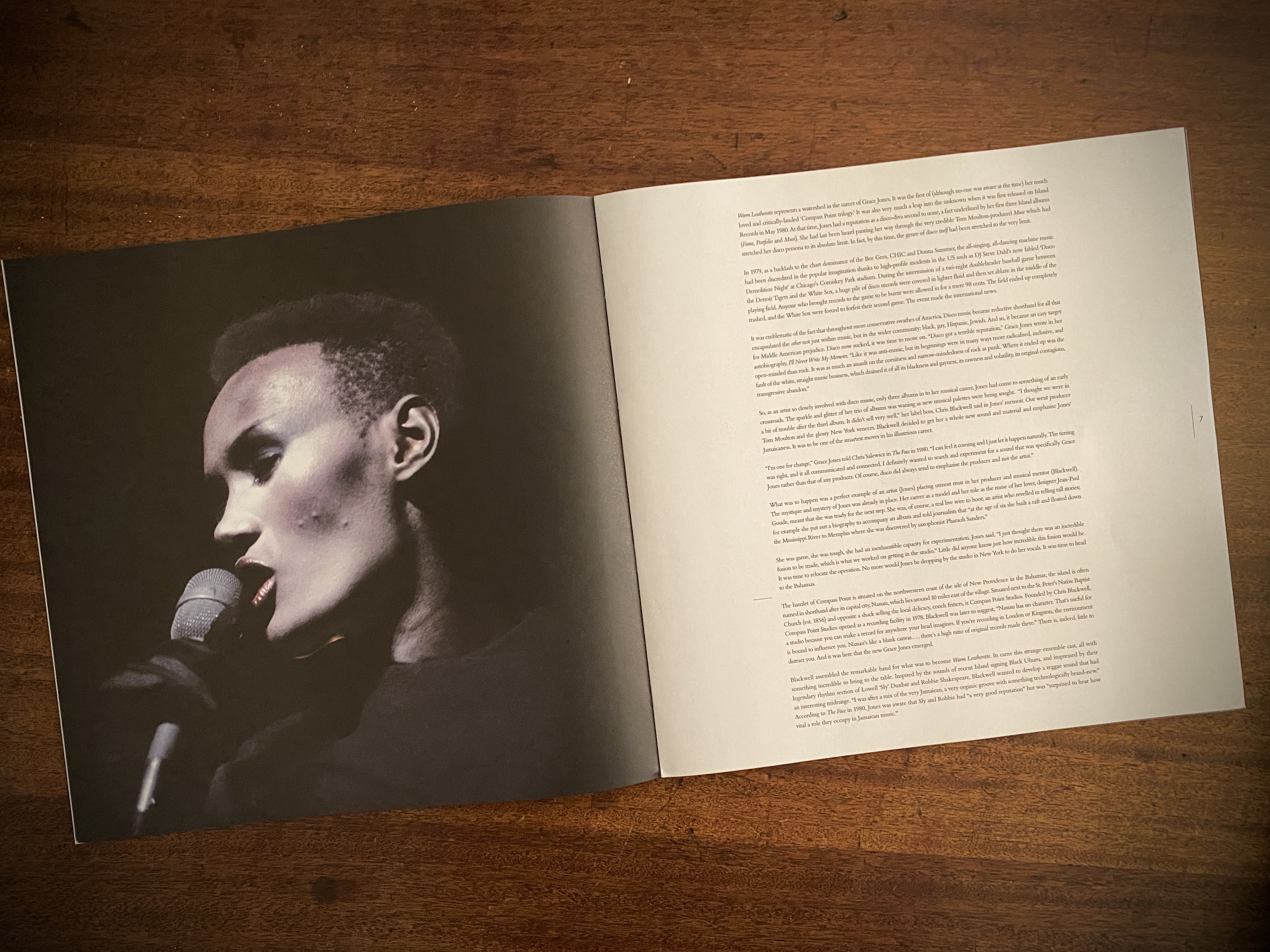
Grace Jones: Slave to the Rhythm (4 disk box set, 2016)
Banned from YouTube?!
WHY?!?
Latest Acquisitions
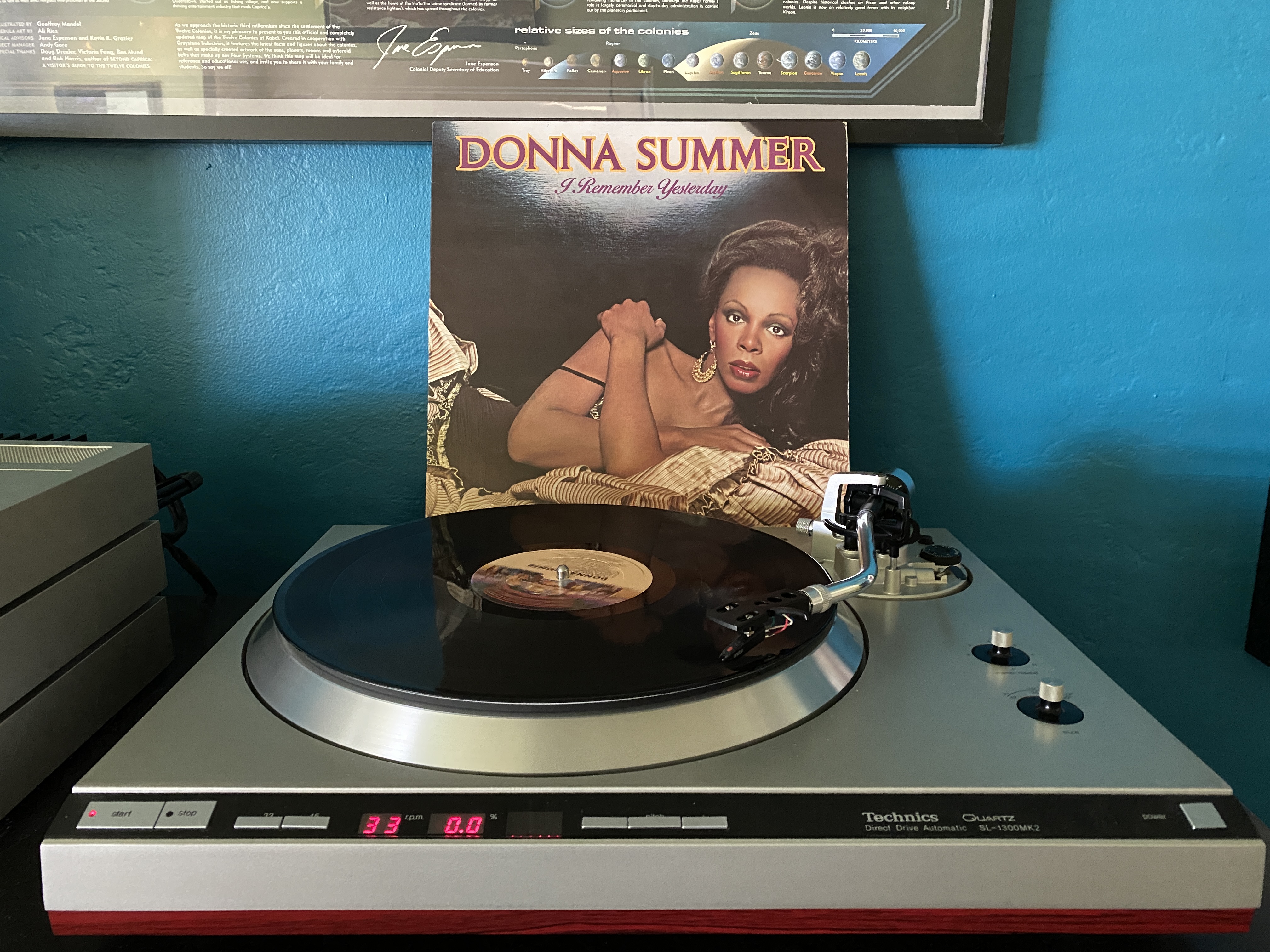
The other day, after posting about I Remember Yesterday, my friend Mark commented that he still had the original vinyl copy he'd bought new back in the day. I was about to send him an email stating that while I no longer had my original, I did have a vinyl copy and was going to email him a photo.
Well imagine my surprise when I went to the shelf and it was nowhere to be found. And then I remembered: I'd never actually replaced that particular release. I had it on CD, and I had an MP3 copy, but no vinyl.
A trip to Discogs took care of that post haste, and it arrived today.
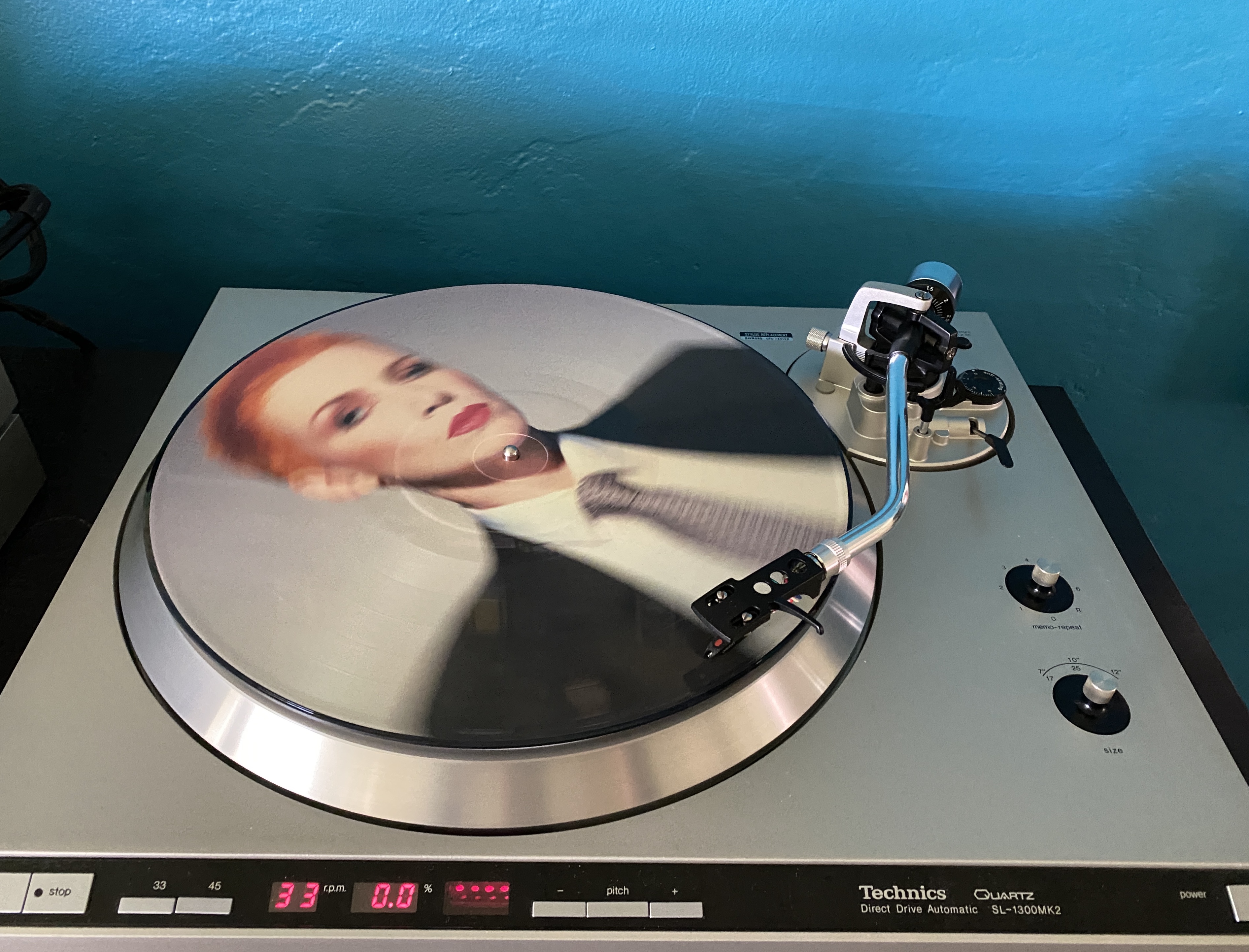
Another record that's been on my radar for a couple years after seeing it on Instagram a while back was the Eurythmics picture disk pressing of Sweet Dreams are Made of This. Slowly making my way through my Discogs wish list, I actually ordered a copy of this back in February from a seller in France, but it never arrived, so he refunded the money. The offerings that showed up subsequently were uniformly graded VG or VG+, but I was holding out for NM (near mint) or—as unlikely as it seemed—M (mint). A NM copy at a very reasonable price finally showed up online about a month ago, so I went ahead and ordered it. This seller was in the UK, so I dropped some extra coin to get a tracking number this time. It only took about three weeks to get here, and it was exactly as described. Definitely "near mint" as described and worth the wait.
Released 49 Years Ago Today
Carpenters: Carpenters (1971)
I'm old.
This was the first Carpenters album I bought, and in many ways still my favorite.
Released 43 Years Ago Today
Donna Summer: I Remember Yesterday (1977)
Released 39 Years Ago Today
Grace Jones: Nightclubbing (1981)
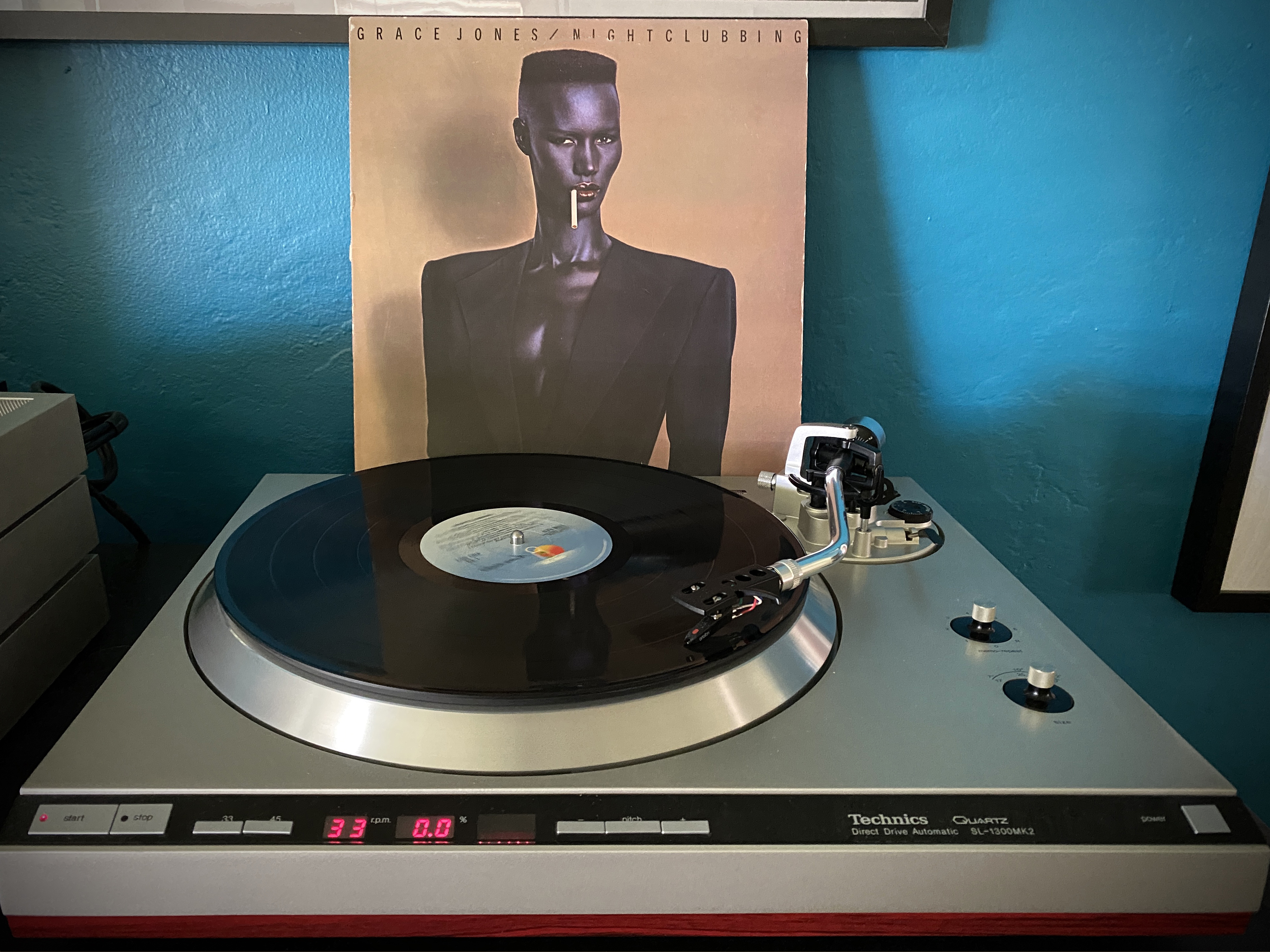
Released 39 Years Ago Today
Kraftwerk: Computer World (1981)
Released 40 Years Ago Today
https://www.youtube.com/watch?v=4OeX9Rq9cFk&list=PLrpyDacBCh7D9LYtNqpCNxIAyLk4R26uA
Grace Jones: Warm Leatherette (1980)
My favorite—or maybe second favorite—Grace Jones album. I can never definitively say if this or Nightclubbing is my favorite. They're both so good they could easily have been released as a double LP.
Released 45 Years Ago Today
Carpenters: Now and Then (1975)
Just Curious
I realize this may not be everything they've done, but of the ones shown, what's your favorite? (Vote below and feel free to leave a comment.)
 |
 |
 |
 |
 |
 |
 |
 |
 |
 |
Aspire to Greatness
Chalk up another one to 2020. R.I.P. Florian Schneider, co-founder of Kraftwerk. This one is hitting me hard.
From the New York Times:
Florian Schneider, 73, Dies; Revolutionized Pop Music With Kraftwerk
The German band he helped found toyed with ideas about technology and society, leaving a profound mark on rock, dance music and hip-hop.
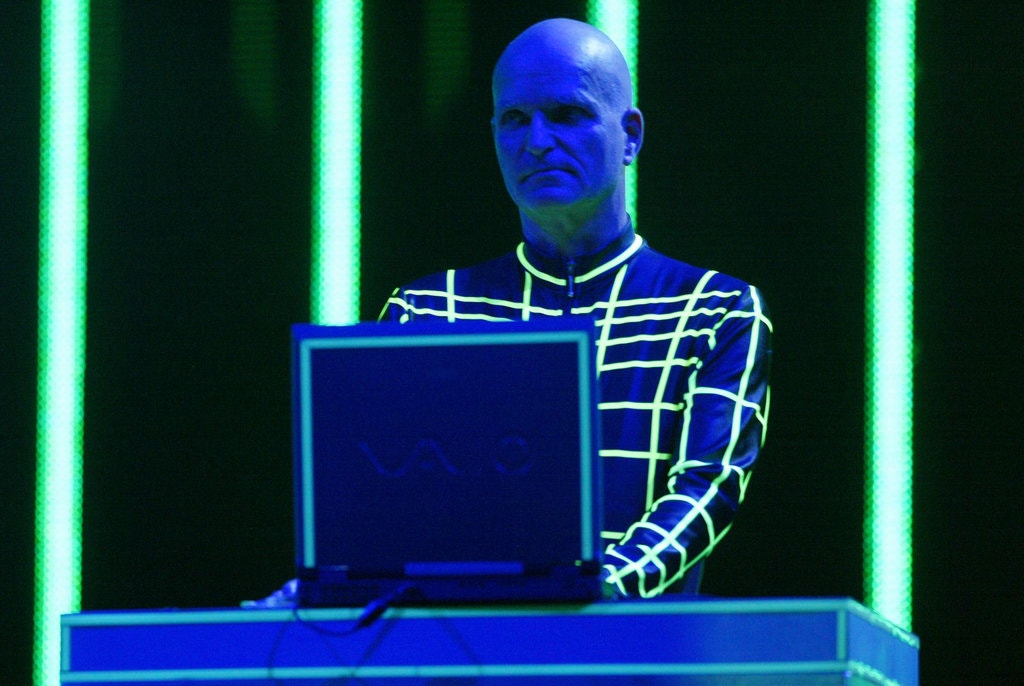
Florian Schneider, one of the founders of Kraftwerk, the German band that revolutionized pop music through its embrace of synthesizers and electronic beats, leading to a broad influence over rock, dance music and hip-hop, has died. He was 73.
In a statement, the group said Mr. Schneider had died from cancer "just a few days" after his birthday, which was April 7.
Founded in Düsseldorf in 1970 by Mr. Schneider and Ralf Hütter, Kraftwerk emerged as part of the so-called krautrock genre — a German branch of experimental rock that explored extended, repetitive rhythms.
But by the time Kraftwerk released its album "Autobahn" in 1974, it had become clear that the group had developed something even more elemental and extreme. The 22-minute title track, which took up the entire first side of the LP, began with a robotic voice intoning "autobahn," German for highway. It continued with buoyant, hypnotic synthesizers that gave the listener a sense of gliding through a futuristic landscape, and with lyrics that repeated, "Wir fahren, fahren, fahren auf der Autobahn" ("We're driving, driving, driving on the highway").
An abbreviated version of the song became an international radio hit, reaching No. 25 on the Billboard Hot 100 chart in 1975.
On later albums, like "Trans-Europe Express" (1977) and "The Man-Machine" (1978), Mr. Schneider and Mr. Hütter — joined by other musicians, among them Karl Bartos and Wolfgang Flür — developed their ideas further. They created a catchy and provocative version of electronic pop and toyed with concepts of the role of human beings in a mechanized society.
On "Computer World" (1981), they set dystopian lyrics to the chirpy sounds of early personal computers, lumping together "Interpol and Deutsche Bank/F.B.I. and Scotland Yard," offering suggestions of a surveillance state that still resonate today.
Mr. Schneider and Mr. Hütter variously described their work as industrial folk and techno pop. Rather than seeing Kraftwerk as simply a musical group, they characterized it as a "multimedia project" or even a hybrid of humanity and machine.
"Kraftwerk is not a band," Mr. Schneider told Rolling Stone in 1975. "It's a concept. We call it 'Die Menschmaschine,' which means 'the human machine.' We are not the band. I am me. Ralf is Ralf. And Kraftwerk is a vehicle for our ideas."
Mr. Hütter usually spoke for the group in interviews, with Mr. Schneider sitting by quietly. "Florian is a sound fetishist," Mr. Hütter told the British music magazine Mojo in 2005. "I am not so much. I'm maybe more a word fetishist."
But like his partner, Mr. Schneider had a knack for expressing provocative ideas that were catnip to curious journalists.
When the rock critic Lester Bangs interviewed Kraftwerk, also in 1975, he skeptically remarked that he found their music unemotional.
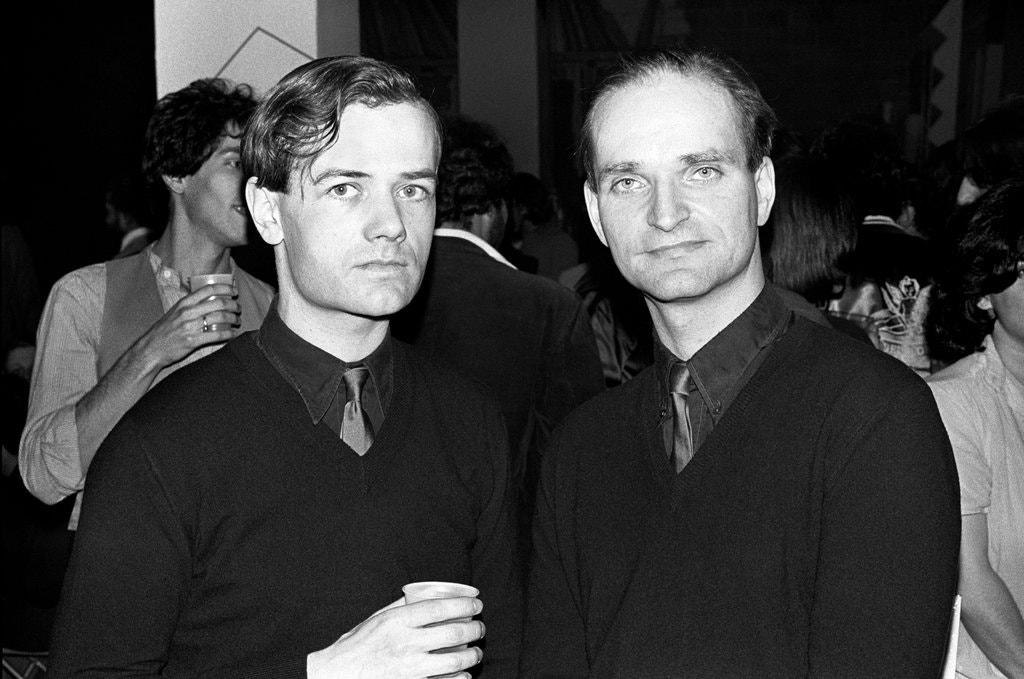
"Florian quietly and patiently explained that 'emotion' is a strange word," Mr. Bangs wrote, and he proceeded to quote Mr. Schneider: "There is a cold emotion and other emotion, both equally valid. It's not body emotion, it's mental emotion. We like to ignore the audience while we play, and take all our concentration into the music.
"We are very much interested in origin of music. The source of music. The pure sound is something we would very much like to achieve."
Florian Schneider-Esleben was born on April 7, 1947, in Öhningen, then part of West Germany. His father, Paul Schneider-Esleben, was a prominent modernist architect whose projects included the Cologne-Bonn Airport.
Mr. Schneider met Mr. Hütter in 1968 in an improvisation class at the Robert Schumann Hochschule, a music school in Düsseldorf. They soon began performing together, with Mr. Schneider on flute and Mr. Hütter on keyboards, and they joined a progressive rock band, Organisation, which released one album, "Tone Float," in 1969.
The two men started Kraftwerk — the word means "power station" — in 1970 and established Kling Klang, the Düsseldorf studio that would be their home base for decades. That year, Mr. Schneider also purchased a synthesizer and became interested in manipulating acoustic sounds through electronics.
"I found that the flute was too limiting," he was quoted as saying in "Kraftwerk: Man, Machine and Music," a 1993 book by Pascal Bussy. "Soon I bought a microphone, then loudspeakers, then an echo, then a synthesizer. Much later I threw the flute away; it was a sort of process.
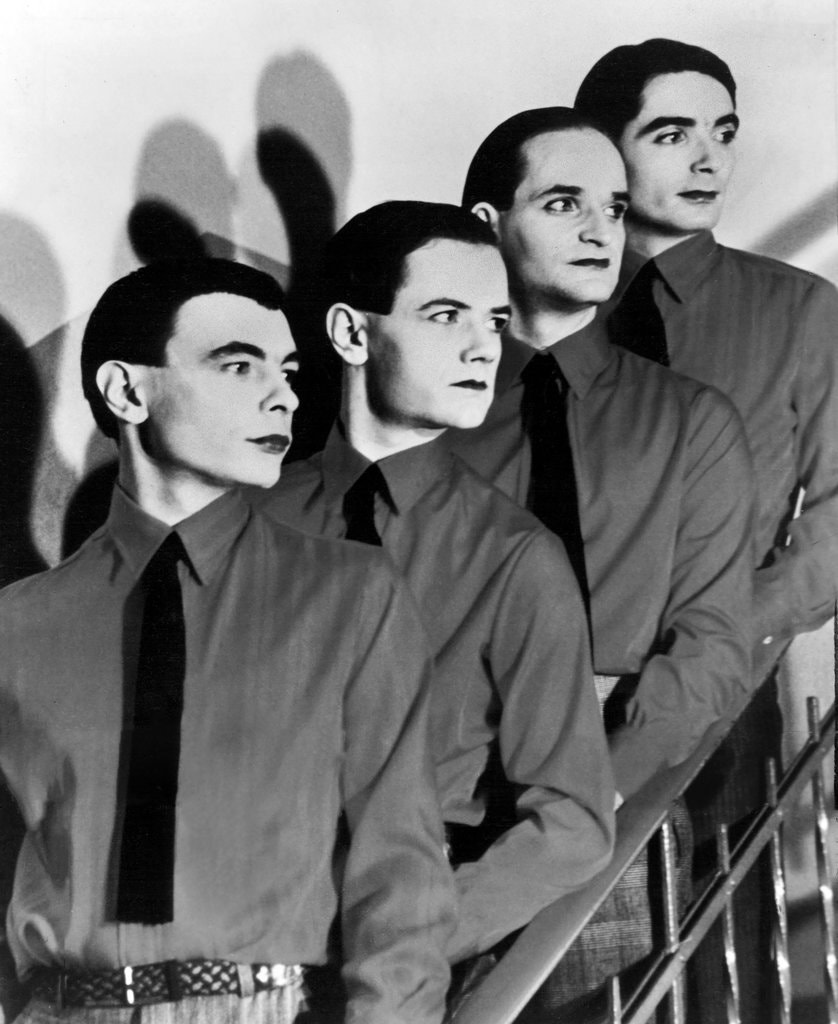
Early recordings of the group feature stuttering grooves that mingle electronic keyboards with Mr. Schneider's rapid-fire flute. Mr. Schneider and Mr. Hütter have described being influenced by both the avant-garde composer Karlheinz Stockhausen and the Beach Boys. Kraftwerk's songs often seem to make an implicit commentary on the interchangeable, repetitive structures of pop.
While early rock critics were often baffled by Kraftwerk, the group's influence had become clear by the mid-1970s. David Bowie praised the band in the music press and titled the track "V-2 Schneider," from his 1977 album "Heroes," in tribute to Mr. Schneider.
In 1982, Kraftwerk became part of the bedrock of early hip-hop when Afrika Bambaataa and his group Soul Sonic Force recreated the rhythm to Kraftwerk's song "Trans-Europe Express" on "Planet Rock." And Kraftwerk's mechanized beats became blueprints for practically the entire genre of electronic dance music.
In time, the group's performances became more conceptual and, to some critics, absurd. In concert they would mime their performances at machines that played prerecorded tracks. Sometimes the human musicians would exit the stage entirely, replaced by rudimentary robot effigies that "performed" in their place.
Kraftwerk has been nominated for the Rock & Roll Hall of Fame six times — including for the most recent class — but has yet to be inducted. The group was given a lifetime achievement award at the Grammys in 2014.
In February, the group announced plans for a "3-D" tour of North America to celebrate its 50th anniversary.
Information on Mr. Schneider's survivors was not immediately available.
Even by the reclusive standards of Kraftwerk, whose members rarely gave interviews and would disappear from the scene for years, Mr. Schneider was especially enigmatic. The group announced his departure in 2008, and he did not participate in later tours, including a series of performances in 2012 at the Museum of Modern Art in New York.
In 1998, he was appointed a professor of "media art and performance" at the Karlsruhe University of Arts and Design. But on Wednesday, according to a report by The Associated Press, the university told DPA, the German press agency, that "as far as it knows, he never took up the professorship."
A Soundtrack for Our Times
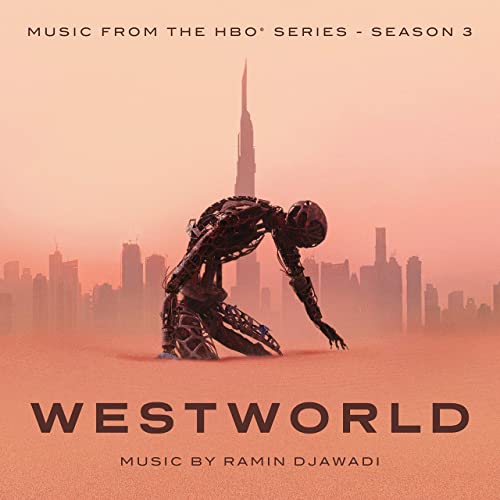
Released 28 Years Ago Today
Annie Lennox: Diva (1992)
IMHO, her Masterpiece.
I Think We're All To That Point, Freddie.
Queen: I'm Going Slightly Mad
The Summer Mix, 2008
Twelve years ago, just a scant few months before Ben entered my life, I created this two-disk playlist.
Admittedly this is an odd collection, but listening to it this afternoon sent me back to providing tech support at the hospital where I made friends that grace my life to this day, learned technical skills that propelled my career, and celebrated my 5-year cancer free anniversary. Both my folks were still alive, Mom hadn't yet begun the precipitous decline into Alzheimers, I was indulging myself in short, yet extensive road trips, and making more money than I would see again for the next decade. And yet, as I've told Ben, while my life prior to meeting him was okay, something was missing. I was happy, but I wasn't happy. Of course, unbeknownst to me at time, all that was about to change for the better.
Sequestered in my private office in the bowels of the hospital (Why is I.T. always in the basement?) I had the luxury (yet to be repeated) of a locking door and—since the rest of the floor consisted of rarely-used conference rooms and two other unoccupied offices—of cranking tunes when the mood struck me, and these were but a few items on my playlist from that period in my life.
Do the tunes say anything about my mental and emotional state at the time? Probably, but its still quite invisible from this side of the mirror.
Dancing in My Seat
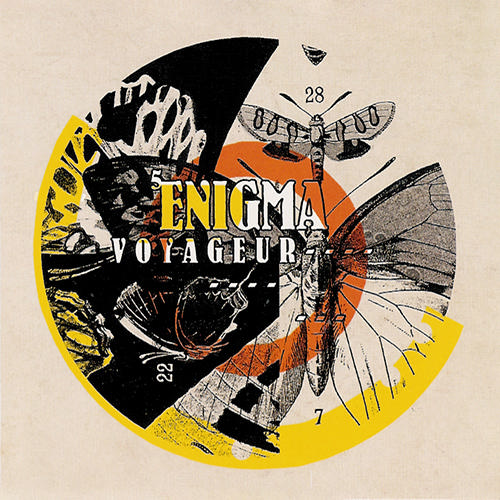
I'm Going To Hell
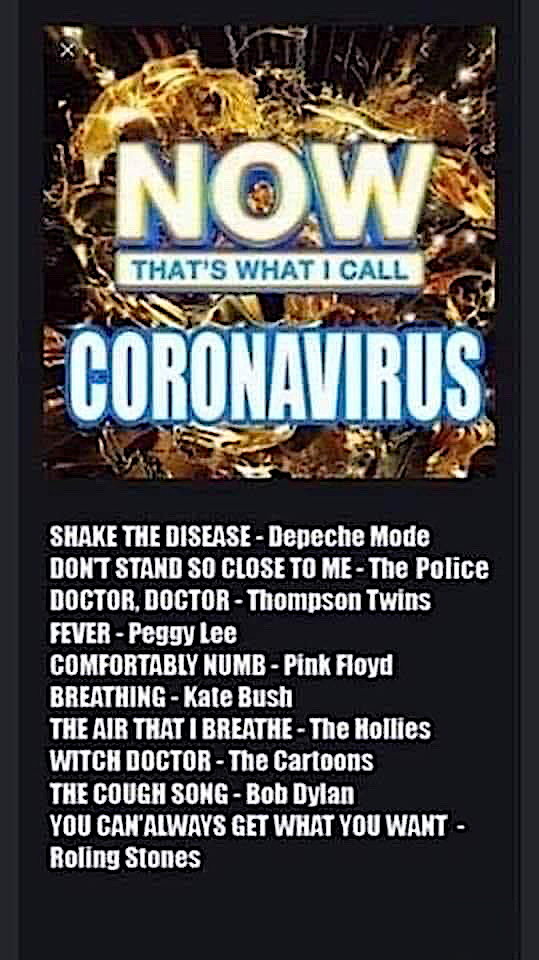
Here.
My Latest Acquisition
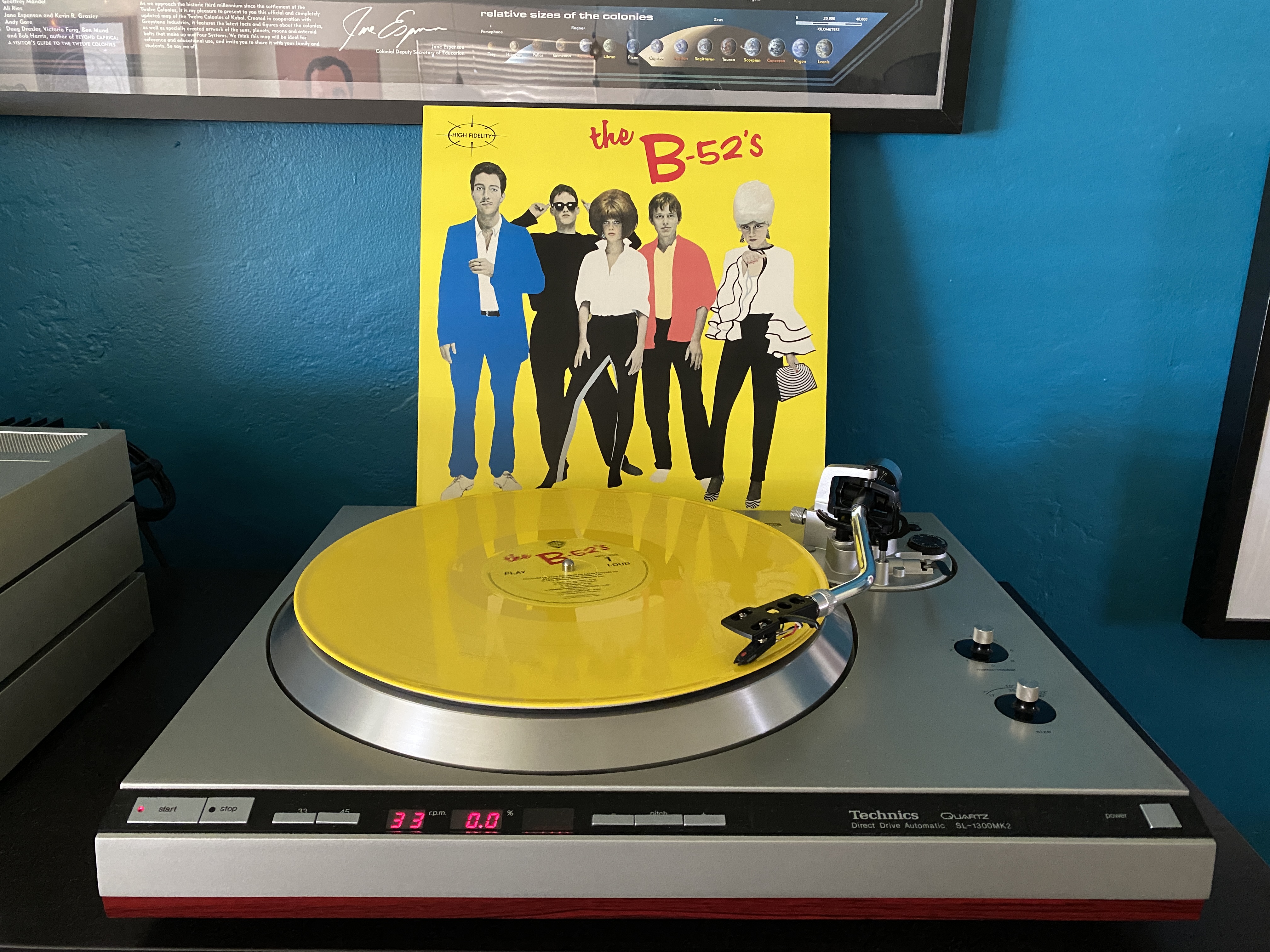
366 (It's a Leap Year, Boys) Days of UNF: Day 88

Gawd I Needed This…And I Didn't Even Know It

I consider myself neither a Streisand queen nor a Broadway queen, but goddamn, I put this on today—after not hearing it for 20 years or more—and it was like diving into a cool, clear, stream.
I won't say that I have specific memories attached to this album, but rather more of a feeling; a Joie de vivre from the 80s.
I'm Not Sure How I Missed This…
https://www.youtube.com/watch?v=7_M-TasnGtg&feature=youtu.be
Released 22 Years Ago Today
Madonna: Ray of Light (1998)
Released 36 Years Ago Today
https://www.youtube.com/watch?v=APyl6Cnbfzw&list=OLAK5uy_n23hioYnPFE82DV7_svu3eI3uCsl3OU18
Thompson Twins: Into The Gap (1984)
Released 44 Years Ago Today
https://youtu.be/6XOrM81UCz0
The Eagles: Their Greatest Hits (1976)
Released 34 Years Ago Today
https://www.youtube.com/watch?v=PYFWV_zY1uY&list=PLrpyDacBCh7AolJ4X8D5UNgvQEtpz84Mq
JANET JACKSON: CONTROL (1986)
